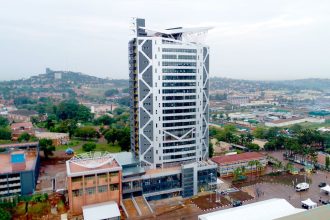(ADDIS ABABA) – Ethiopia has generated more than $55 million from its Bitcoin mining industry over the last 10 months, with the support of its state-owned utility, Ethiopia Electric Power (EEP). This revenue comes from agreements made with 25 bitcoin mining companies, who have been attracted by the country’s affordable, renewable energy resources, particularly from the Grand Ethiopian Renaissance Dam (GERD).
Ethiopia Electric Power has dedicated nearly 600 megawatts (MW) of energy to bitcoin mining operations, a move that has positioned the country as a rising player in the global Bitcoin mining sector. According to Ethan Vera, the Co-Founder and COO of Luxor Mining, this effort has resulted in Ethiopia accounting for 2.25% of the global Bitcoin hash rate, making it a key contributor to the sector in Africa. The country ranks fourth worldwide in Bitcoin hash rate contribution, following the United States, Hong Kong, and other parts of Asia.
This rise in Ethiopia’s mining capacity is largely due to the country’s abundance of renewable energy, primarily from hydropower. Since China’s 2021 ban on bitcoin mining, many Chinese miners have sought new opportunities in countries like Ethiopia, where energy is not only plentiful but also affordable. The Ethiopian government has strategically sought to attract such miners, viewing this as an opportunity to utilize surplus energy while also boosting its economy.
In February 2024, Ethiopia’s Investment arm, Ethiopian Investment Holdings (EIH), signed a $250 million memorandum of understanding (MoU) with Hong Kong-based West Data Group. This partnership will enable the development of infrastructure to support Bitcoin mining, data mining, and artificial intelligence (AI) training operations in the country.
Ethiopia’s electric grid is powered by clean hydropower, with 90% of its electricity sourced from renewable energy. The country has an installed generation capacity of 5,250 MW. Despite this substantial capacity, only about half of the Ethiopian population has access to electricity, leaving the country with a significant energy surplus. This surplus has allowed Ethiopia to sell electricity to neighboring countries. For example, Ethiopia Electric Power earned $10.38 million from selling 169,710 megawatt-hours (MWh) of power to Djibouti and $20.47 million from 314,931 MWh sold to Kenya.
Additionally, the Ethiopian government earned more than $659,000 from providing 13,185 MWh of electricity to Sudan. However, due to ongoing conflict in Sudan, the electricity supply to the country was significantly reduced, with only 15% of the planned electricity being delivered during the quarter.
Ethiopia’s embrace of Bitcoin mining is part of a larger economic strategy to leverage its abundant renewable energy to attract international investment and foster industrial development.




















